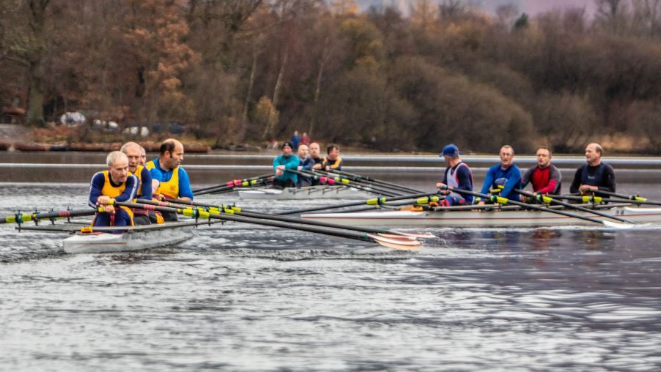The eccentric man who built a house on a lake
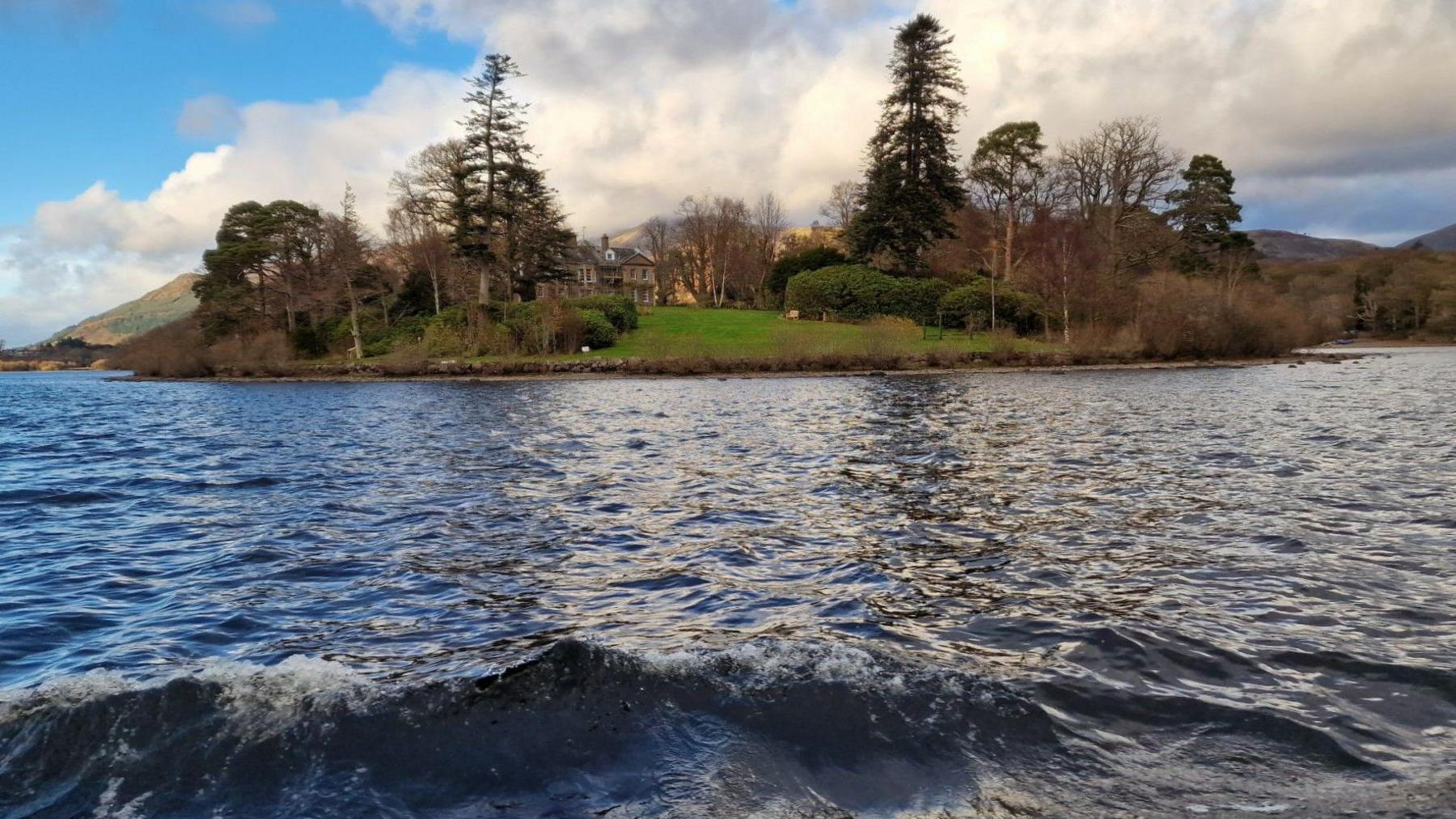
Derwent Island was bought by a wealthy man from Nottinghamshire at the end of the 18th Century
- Published
The Lake District has long been a much-loved tourist destination, with scores of people moving there to enjoy its charms.
But wealthy Joseph Pocklington took that one step further when he bought his own island on Derwentwater, outraging many - including poet William Wordsworth.
His contemporaries branded Mr Pocklington a man "with no taste whatsoever", but he was the brains behind an event which continued long after his death, the Keswick Regatta.
Keswick Museum's Sam Turnbull said: "He didn't really fit in and he believed that throwing enough money at the problem would make something happen - and by some miracle it did."
The island, known as Derwent Island and now owned by the National Trust, is still inhabited to this day and opens to the public five days a year.
Mr Pocklington, who was from a wealthy Nottinghamshire banking family, bought it in 1778, two years after first visiting Keswick on his way back home from a trip to Scotland.
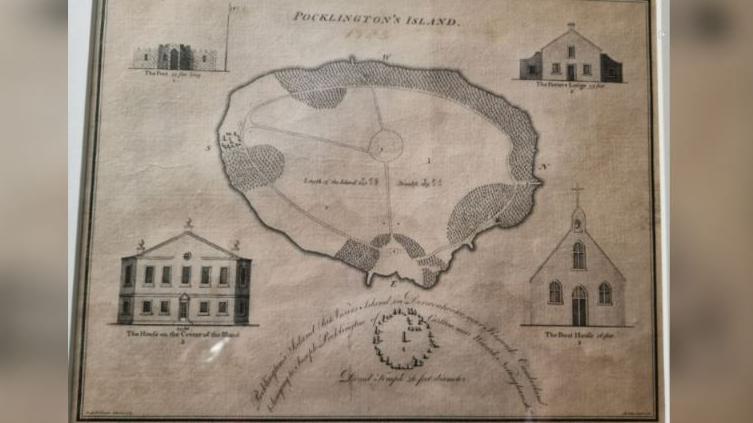
Mr Pocklington's island included a stone circle and a church, among other structures
A framed map on display at Keswick Museum shows Mr Pocklington's designs for the island, including a manor house and mock military structure, Fort Joseph.
There was also a boat house, church and fake stone circle he had built, which he attempted to sell off as real, Mr Turnbull said.
"He had, I believe, a very admirable quality that is rather timeless - he doubled down.
"And when he was told what he had done was a hideous mistake, he tripled down and he had the resources to do so," said Mr Turnbull.
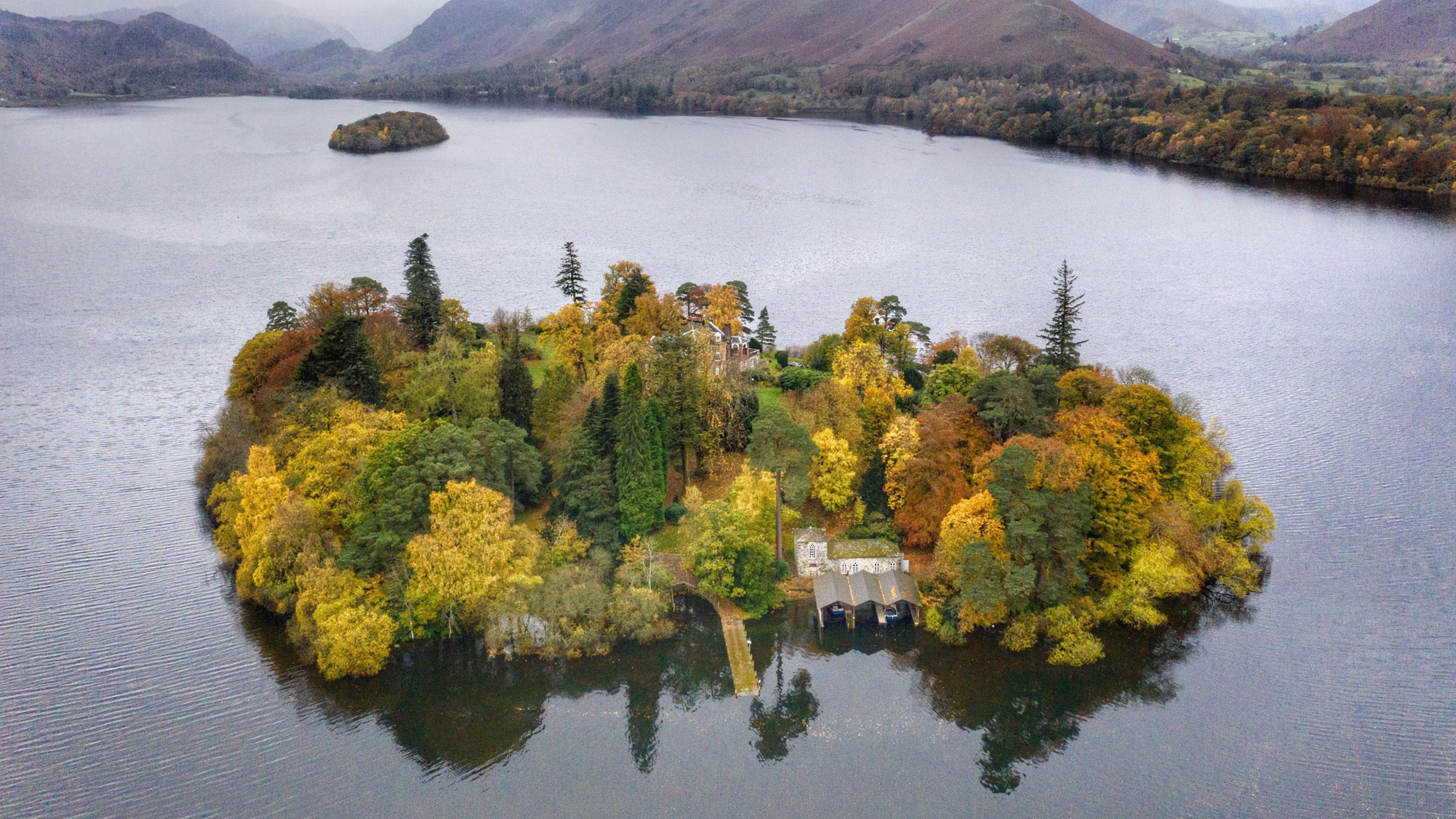
People still live on the island all year round
Sarah Murray, who wrote a travel guide in 1799, famously said: "Mr Pocklington's slime may be traced in every part of Keswick Vale."
However, his Keswick Regatta became a popular event in the area's calendar, and ran from 1781 until 1849, long after his death in 1817.
Mr Turnbull described the event as a mixture between a village sports day and naval re-enactment, attracting huge numbers of tourists.
It involved boat races, foot races, Cumberland wrestling and culminated in a naval battle.
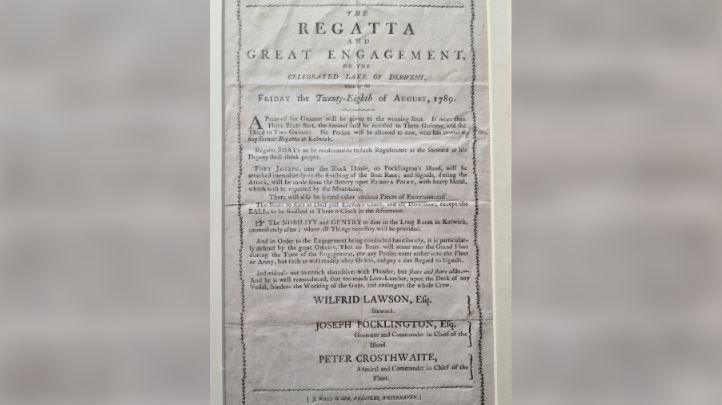
Keswick Regatta became a popular event in the Cumbrian calendar
Mr Pocklington teamed up with local Peter Crosthwaite to give the event financial backing.
Mr Crosthwaite had served in the navy and he would lead the boats with cannons pretending to storm the island, with the cannon fire heard all the way across to Catbells on the other side of the lake.
"People paid for tickets to be manning the cannons, people paid to attend the event and it became - as supposedly tasteless as it was - a very popular social event," said Mr Turnbull.
The island was sold in1798 and when Mr Pocklington's structures were pulled down, William Wordsworth said the island had been "rid of its puerility".
Follow BBC Cumbria on X, external, Facebook, external, Nextdoor and Instagram, external. Send your story ideas to northeastandcumbria@bbc.co.uk.
- Published9 March 2024
